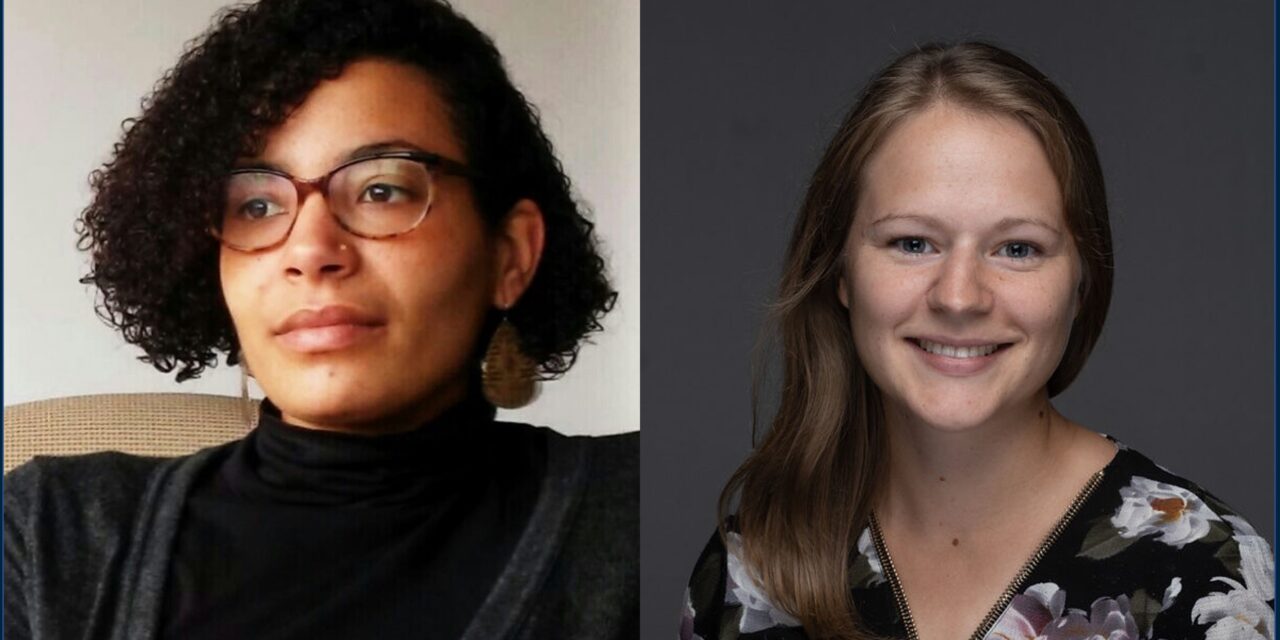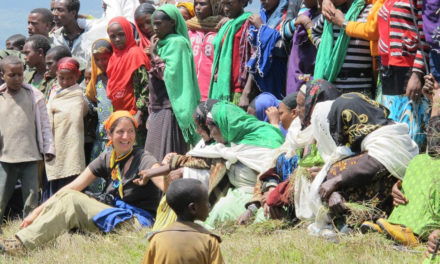2023 CAGS-ProQuest Distinguished Dissertation Award
Winner – Fine Arts, Humanities and Social Sciences Category
Dr. Célia Romulus (She-Her), Department of Political Studies, Queen’s University
Supervisor: Dr. Margaret Little, Professor, jointly appointed to Gender Studies and Political Studies, Queen’s University
Dissertation: Remembering the Duvalierist State – Gender, State Repression, and Migration Patterns between Haiti and Canada
Dr. Célia Romulus (She-Her) provides a close examination of Haitian feminism from a transnational perspective, examining the intergenerational memory of political violence perpetrated under the Haitian dictator Jean-Claude Duvalier (1971–1986) and the ways in which it shaped Haitian men and women’s experiences in the diaspora in Montreal from the 1960s to 1980s. Drawing on scholarship centring Duvalierism, the memory of political violence, and epistemologies of ignorance as they relate to migration, diaspora, and citizenship, Romulus develops an analytical framework that centres memory and experience within the context of displacement and racial violence. Employing a path-breaking decolonial feminist methodology that draws upon archival documentation, artistic performance, participant observations, interviews, and autoethnography, Remembering the Duvalierist State develops an original epistemic framing for understanding the impact of, and the ways in which, Duvalierism and its relationship to Canadian and Québecois political culture are remembered by multiple generations. Termed “Haitian internationalist feminism” by Romulus, this novel theory makes significant contributions to scholarly literatures on decolonial and Haitian feminisms, memory and silence, Canadian diasporic experiences including Black feminist organizing in Canada, and the Duvalierist period more generally. The thesis was funded by a SSHRC CGS-D scholarship, and will be used across disciplines to understand local and international feminism, how global political economic forces have affected the lives of Haitians both in their homeland and abroad, and how we need to appreciate silence and memory in our analysis of political violence, its ongoing impacts, as well as resistance strategies to dictatorships and the Canadian settler-colonial state.
Dr. Célia Romulus completed an MA at SciencesPO, Bordeaux, France, and has taught courses at Queen’s University, York University, and the Université Quisqueya, Haiti. Dr. Romulus is currently an Assistant Professor at the University of Ottawa’s Institute of Feminist and Gender Studies and the School of International Development and Global Studies.
“Writing a dissertation is intellectually, physically, psychology and emotionally challenging, particularly when engaging in anti-oppression politics as a member of an equity-seeking group in academia. It is important to acknowledge that our dissertations are the manifestation of years of hard work and that engaging in doctoral research is an accomplishment in and of itself. It is fundamental to find your community, to be mindful of your needs, and to identify resources and supports systems that will help you through the process.” – Dr. Célia Romulus
“[Dr.] Romulus extends beyond the sociological imagination by situating her own family history into the textured histories and lives of many Haitians, and illuminating state and social power from a transnational perspective.” – External Examiner

Dr. Célia Romulus (She-Her)
Dr. Célia Romulus in an assistant professor at the Institute of Feminist and Gender Studies and the School of International Development and Global Studies of the University of Ottawa. Her research and teaching draw from anti-oppression and anti-racist education, Afro and decolonial feminisms, and explore questions related to gender, race and the politics of memory, migrations, citizenship, political violence, and development. The second aspect of her research explores epistemic violence and resistance and interdisciplinary methods. Célia Romulus worked as a program director in the areas of gender-based violence in public spaces and in security sector reform for UN Women, the United Nations entity dedicated to gender equality and the empowerment of women. She continues to work as a community educator and consultant on questions related to anti-oppression, anti-racism, Black femininities/masculinities, gender mainstreaming in public policies and in development.
Winner – Engineering, Medical Sciences and Natural Sciences Category
Dr. Sabrina Rondeau, School of Environmental Sciences, University of Guelph
Supervisor: Dr. Nigel Raine, Rebanks Family Chair in Conservation and Professor, School of Environmental Sciences, University of Guelph
Dr. Sabrina Rondeau’s dissertation examines the sublethal impacts of pesticide exposure on wild bees, particularly ground-nesting bees and bumblebee queens. Applying a cutting-edge suite of tools and methodologies to an under-studied realm of ecotoxicology, Dr. Rondeau explores the impact of pesticide-contaminated soils on the health of agriculturally and economically important ground-dwelling bee species. Her research reveals that soils with pesticides actually attract queen bumblebees, while at same time producing complex interactions with wild bees’ body mass, colony development, pollen gathering rates, and offspring size. The dissertation makes important contributions to scientific understandings of the impact of pesticide exposure on bees, and has many implications for the conservation of these vital pollinators, including the ongoing re-evaluation of environmental risk assessments of pesticides in Canada and beyond. Dr. Rondeau’s graduate and postdoctoral research has been supported by scholarships and fellowships from the Arrell Food Institute, the Weston Family Foundation, the L’Oréal-UNESCO For Women in Science program, the Fonds de recherche du Québec, and NSERC. She has published seven first-author and two co-authored articles in peer-reviewed journals.
Dr. Sabrina Rondeau completed an MSc at Laval University, and a postdoctoral fellowship at the University of Guelph. She is currently a postdoctoral fellow in the Department of Biology at the University of Ottawa.
“Embrace the process and celebrate progress: Keep in mind that completing your dissertation is a journey, not just a destination. Embrace the challenges and setbacks as integral aspects of the learning process, all while taking the time to celebrate milestones along the way. Whether it’s completing a chapter, uncovering a fascinating finding, or overcoming a writing challenge, each accomplishment deserves recognition and celebration.” – Dr. Sabrina Rondeau
“Overall I find this dissertation to be an enjoyable and impressive body of work that addresses major gaps of knowledge in two promising study systems… [and] making strides towards establishing soil testing as a new model for pesticide regulation and wildlife safety compliance.” – External Examiner

Dr. Sabrina Rondeau
Sabrina Rondeau’s research focus lies at the interface between pollinator conservation and sustainable food production. Through her research, she collaborates closely with farmers, community scientists, and fellow field experts to understand the far-reaching consequences of human activities on wild pollinators and find sustainable solutions to mitigate global pollinator declines. Her current postdoctoral research focuses on the direct and interacting effects of global warming and agricultural practices (tillage and pesticide use) on wild ground-nesting bee communities. Beyond her academic research, Dr. Rondeau is an engaged mentor and promoter of science. Among other accomplishments, she is a proud cofounder of Abeilles citoyennes, a community science initiative dedicated to the surveillance of pollinator diversity in the province of Quebec.
The CAGS-ProQuest Distinguished Dissertation Award recognizes Canadian doctoral dissertations that make unusually significant and original contributions, both to their respective academic communities and to Canadian society at large. The award was established in 1994 and is presented annually by CAGS, with sponsorship support provided by ProQuest. For the 2023 award season, eligible dissertations must have been completed and accepted by the graduate school between 1 January 2022 and 31 December 2022.
As expected, there were many extraordinary nominees for this award and the competition was extremely difficult to adjudicate. CAGS received twenty-two submissions from across Canada in each category, and these were assessed by two independent committees each consisting of eight expert judges. Both committees were unanimous in their decision and commended the exemplary dissertations produced by Dr. Romulus and Dr. Rondeau.
Dr. Romulus and Dr. Rondeau will each receive a cash prize of $1,500, a certificate of recognition, and an invitation to present at the 62nd Annual CAGS Conference, to be held in Toronto from 29 October to 1 November 2024. CAGS congratulates the winners for their tremendous accomplishments!











